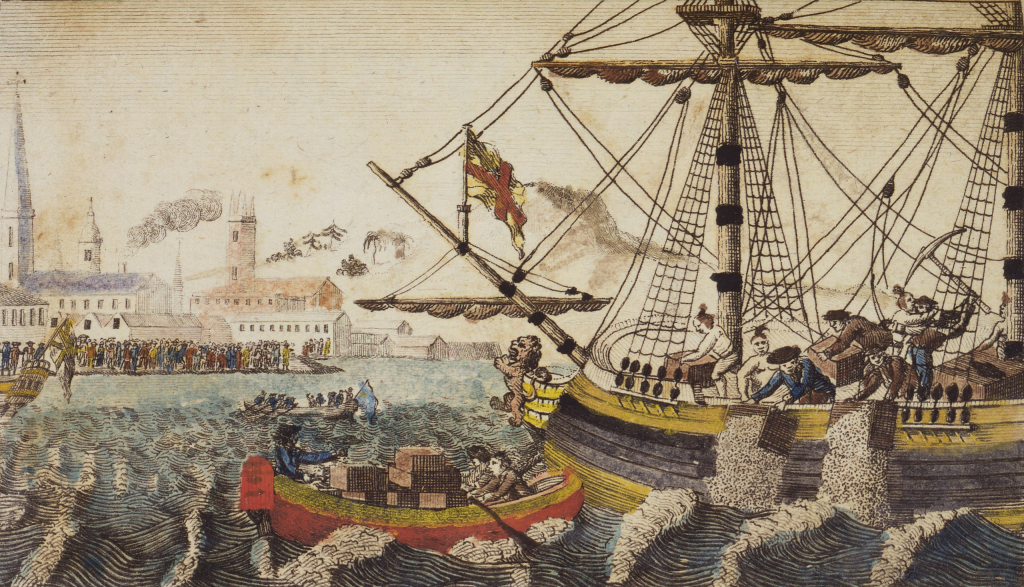The War of 1812 was a messy affair, but it undoubtedly boosted American confidence. Just three months after the war ended in 1815, the U.S. Navy, led by the esteemed Commodore Stephen Decatur aboard the USS Constitution, set sail for the Mediterranean. Their mission? To deal with the Barbary pirates of Algeria. This marked the beginning of the Second Barbary War, which, unlike its predecessor, was a swift success. Within a matter of months, the pirates were subdued, and in 1816, Algeria agreed to release American and European hostages, pay $10,000 in reparations, and pledge never to attack again. The war also ended the tradition of paying “tribute” to Barbary nations, granting the U.S. freedom of navigation in the Mediterranean.

While the war had helped strengthen America’s position abroad, President James Monroe inherited a nation that was starting to feel more secure. Yet, Monroe had his eyes set on a prize—Florida. For years, the peninsula had been a point of contention. Named by the Spanish in 1513, Florida became a hub for European powers. By 1810, part of the territory, West Florida, had been overtaken by American settlers, and after a few more incidents, the U.S. was itching to claim the region entirely.
Florida’s location made it strategically important. With access to the Atlantic, the Caribbean, and the Gulf of Mexico, controlling Florida was crucial for trade and military operations. Monroe’s predecessors, including Thomas Jefferson, had seen its potential, and after the 1812 war, the U.S. began to make moves.
In 1817, Monroe sent General Andrew Jackson to Florida to quell the rebellious groups, including runaway slaves and indigenous tribes. However, Jackson, a man known for taking matters into his own hands, went much further than the instructions allowed, seizing the entire territory and even executing British nationals. This caused a diplomatic uproar. Spain, naturally, protested, and even the U.S. Congress questioned Jackson’s actions. Yet, Secretary of State John Quincy Adams saw an opportunity. Instead of backing down, he encouraged Monroe to use Jackson’s “brashness” as leverage in negotiations with Spain.
By 1819, the U.S. and Spain had reached an agreement—the Adams-Onís Treaty, in which Spain ceded Florida to the United States in exchange for $5 million, settling old debts between the two nations. This not only extended U.S. territory but also secured its claim over the Oregon Territory, marking a significant step toward America’s continental expansion.
The acquisition of Florida helped the U.S. become more of a continental power, with Monroe’s vision of a nation stretching from the Atlantic to the Pacific taking shape. But as the U.S. solidified its borders, it also had to address rising tensions elsewhere.
In Europe, revolutions were brewing. Greece had launched its own fight for independence from the Ottoman Empire in 1821, inspired by American ideals. While some in the U.S. wanted to support the Greeks, Secretary Adams and Monroe upheld the country’s longstanding policy of neutrality, reminding Americans of their non-interventionist principles.
At the same time, Russia was expanding its presence in North America, particularly in Alaska. In 1821, Tsar Alexander I declared that Russia controlled the waters off the North American coast. The U.S. was alarmed, seeing this as a threat to its maritime interests. With the help of Britain, which had its own concerns in Canada, the U.S. successfully negotiated with Russia to limit its expansion southward. This diplomatic success laid the groundwork for what would later be known as the Monroe Doctrine.
In addition to Russian encroachment, the early 19th century saw Latin American countries, inspired by the U.S., fighting for independence from Spain. By the 1820s, several nations, including Colombia, Mexico, and Argentina, had declared their independence. Though the U.S. had initially hesitated to recognize these new nations, the growing threat of European powers attempting to re-colonize Latin America prompted Monroe to take action. In 1823, the Monroe Doctrine was issued, declaring that the Western Hemisphere was closed to further European colonization. The U.S. pledged to stay out of European conflicts, while simultaneously asserting its influence over Latin America.
The Monroe Doctrine became a cornerstone of U.S. foreign policy and symbolized America’s commitment to both territorial expansion and protecting the interests of its hemisphere. As a result, the U.S. began to look beyond its borders, setting the stage for its eventual involvement in global affairs.
In conclusion, the early 19th century was a period of significant territorial and diplomatic gains for the United States. The acquisition of Florida, the negotiation with Spain, and the Monroe Doctrine all helped shape America’s role on the world stage. These events reflect the U.S.’s growing ambition and its desire to assert itself as a continental power. The Monroe Doctrine, in particular, would go on to influence American foreign policy for generations, establishing the United States as a key player in the Western Hemisphere.

No comments yet.